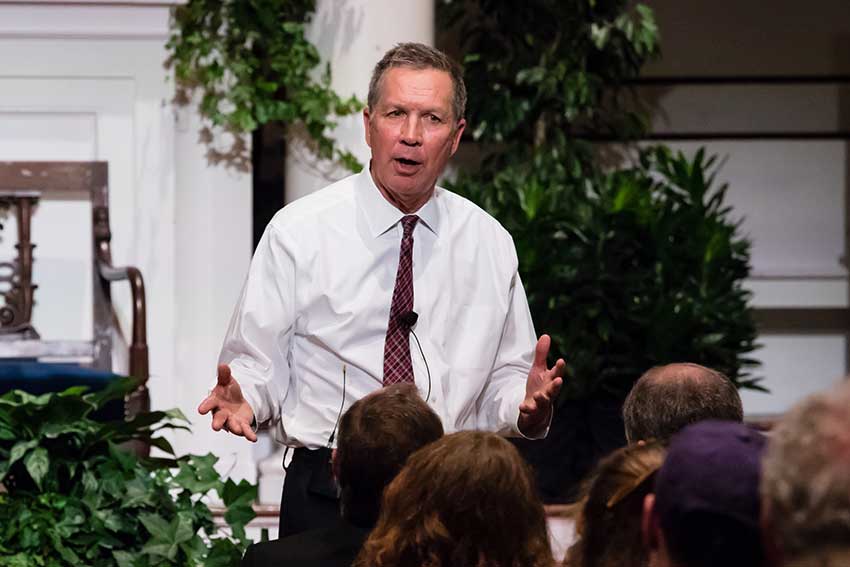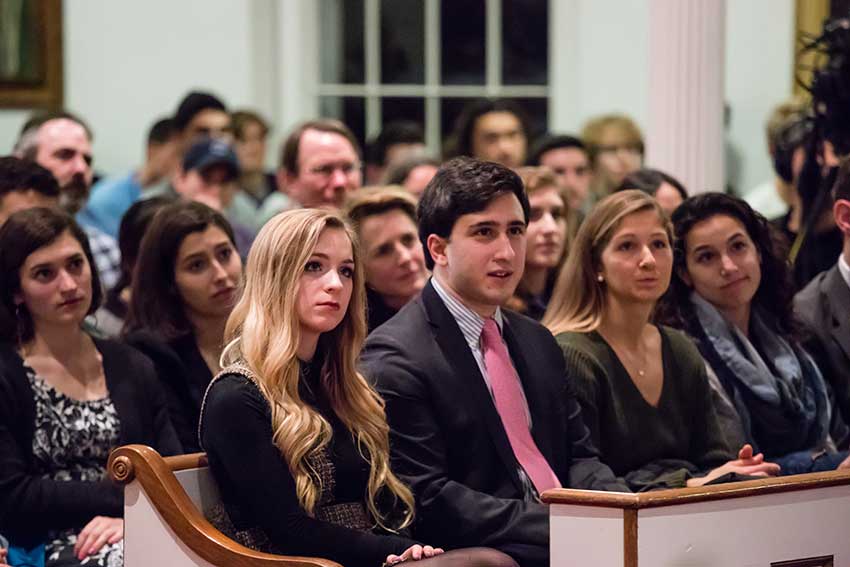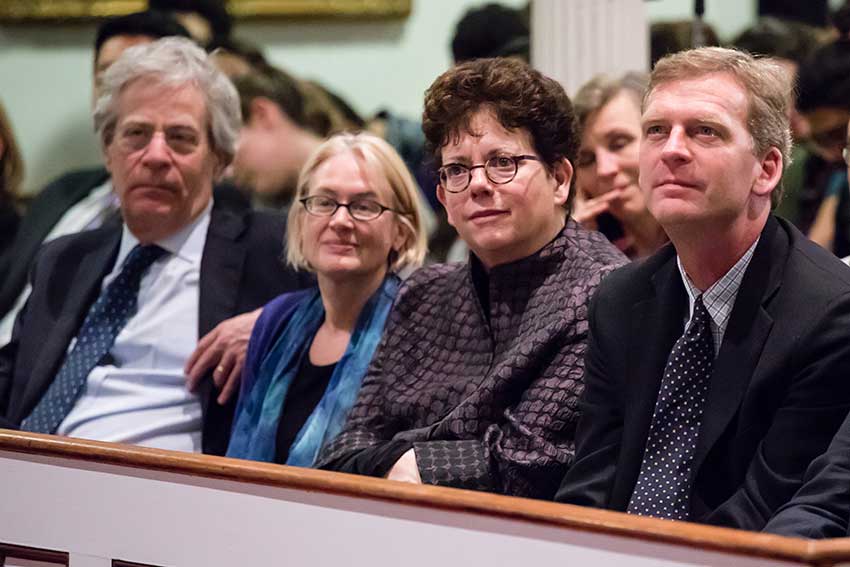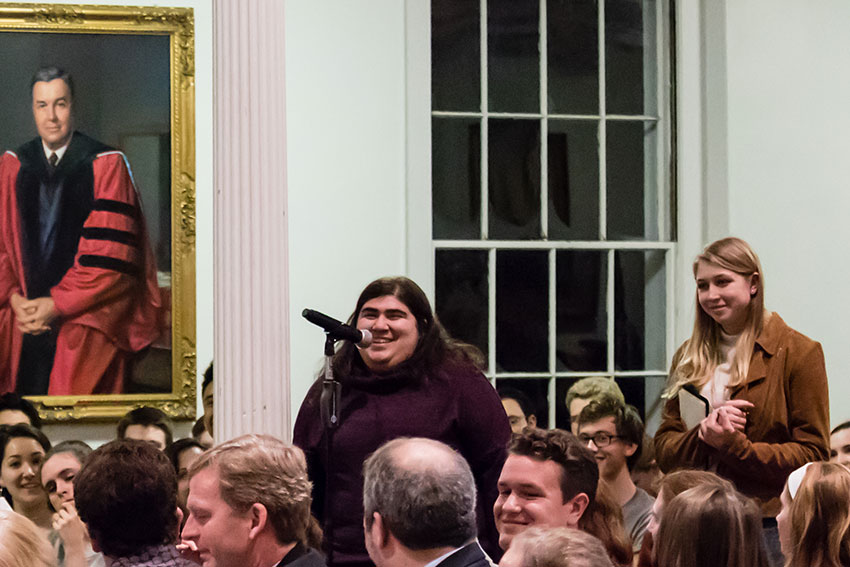
The ephemeral nature of life was on John Kasich’s mind as he stepped in front of a packed house at Johnson Chapel on Thursday night.
“Why does that matter that we recognize the fact that we don’t live forever?” he asked. “It should free us up to lead a big life, to take risks, take chances. Live a life a little bigger than ourselves.”

Kasich, who has just finished two terms as governor of Ohio, serving from 2011 until this January, used his speech at Amherst to talk about a wide swath of topics, from meeting with President Richard Nixon, to the writings of Plato and Nietzsche.
Kasich began by outlining his own early life as the son of a mail carrier in a hardscrabble Pennsylvania town. He enrolled at Ohio State, where, in his first month, he demanded a meeting with the president to lodge a complaint about his living situation.
“At 6’5”, he was the epitome of what a college president should look like,” said Kasich, quickly realizing his gaffe and turning to President Biddy Martin. “I knew it was a matter of time until I got in trouble here,” he joked, to laughter. “It happened in the first five minutes. Could I still get your vote sometime in the future?”

Kasich went on to describe writing a letter to the White House as that same brash college freshman, and subsequently being invited to meet President Richard Nixon. Told he’d have five minutes with the president, he decided, “I didn’t come here for five lousy minutes.” He ended up meeting with Nixon for 20 minutes, which Kasich joked was his “peak” as a politician.
“What’s the moral of that story?” Kasich asked. “Dreams come true. Amazing things can happen.”
That early introduction to politics led to a life of government service, including time working on the Reagan presidential campaign and 18 years as a member of Congress.

Kasich—who ran for the Republican presidential nomination in 2000 and 2016—pointed out areas in which he departs from his party’s platform, including on environmental issues. He also downplayed the role of the U.S. president in the lives of everyday citizens, suggesting that power flows from the people to the top, not the other way around.
“Does it really matter to you what the president of the United States does?” he asked. “I will tell you what I think really matters to you: classes, roommates, brothers and sisters, people you hang out with at school. Those are the people who affect us directly."
“What’s exciting about that is that we’re important. We matter,” he continued. “Think about what that means for your life, what that means for your destiny. You’re here for a reason.”

During the Q&A, several students countered his argument on presidential power. A philosophy major from Pakistan, for example, noted that President Donald Trump’s immigration policies directly threatened his ability to return to Amherst to finish his degree.
Kasich agreed that was a case where presidential power had an effect on an individual, but he also said his larger point was that “we’re too hung up on someone riding in and solving our problems.”
Pressed about the extent to which his views line up with those of his party—and about his views on LGBTQ rights, white privilege and politics—Kasich insisted that although he is a proud Republican, the “Republican party was my vehicle, not my master.”
“I want to do the best I can to be straight with you,” he said. “I’m not governor anymore, and I didn’t make it as president. That’s all I can do, be the best I can.”